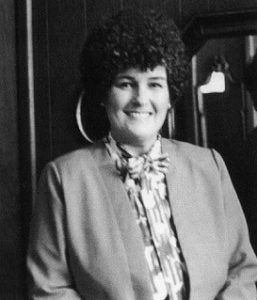Interview w/ Carol Smallwood
By Aline Soules
Posted on

A multi-Pushcart nominee in RHINO and Drunken Boat, Carol Smallwood’s founded and supported humane societies. Her 2017 books include: In Hubble’s Shadow (Shanti Arts); Prisms, Particles, and Refractions (Finishing Line Press); Interweavings: Creative Nonfiction (Shanti Arts); Library Outreach to Writers and Poets: Interviews and Case Studies of Cooperation; and Gender Issues and the Library: Case Studies of Innovative Programs and Resources (McFarland). Here, she is interviewed by author Aline Soules.
Your books cover a wide range of topics and genres—poetry, creative nonfiction, and non-fiction mainly aimed at the library world. How did you end up writing such a broad array of work? How do you balance these various projects?
I started when teachers asked me for classroom materials as a librarian. Then, seeing my first book spurred me to do another, and then another. After a while, I wanted to try fiction and then poetry to balance reading the writing of others. I found writing a novel to be very challenging, so I finally tried poetry, feeling I had nothing to lose; I was very surprised to get acceptances right away. It probably worked for me because I’d taken so many notes in college as a history major (my first Master’s) that capturing ideas economically with words was already instilled in me.
You’re a prolific writer and your work reflects that (five books published in 2017 alone). How do you keep up the pace? What is your writing practice and routine?
I’m retired now (with grown children), so I finally have more time. I doubt if I’ll ever have two poetry collections and a creative nonfiction come out the same year again because they are especially hard to get published. I feel very fortunate that Shanti Arts and Finishing Line Press took them. However, I will be having another poetry book forthcoming again, In the Measuring, from Shanti Arts, which will be exciting; also, library anthologies will be coming out on genealogy and two other topics next year. Writing is an every day ritual, but I do break up morning and afternoon by doing errands and lunching somewhere—with a book, of course, and paper and pen.
How did your poetry books, I wonder how they came together as collections.
My last collection came about after a poem got accepted in The Binnacle: Thirteenth Annual International Ultra-Short Competition Edition, University of Maine at Machias. The poem was about how we select and make decisions, which I thought was wide enough for an interesting collection. I do wish I had How to Write Classical Poetry: A Guide to Forms, Techniques, and Meaning, (Society of Classical Poetry, 2017) when I delved into formal poetry, as the poem was a pantoum from which I learned to write on my own. I like to divide poems into parts for each collection and have one for a prologue and one to end with as an epilogue. On reflection, I’ve done it this way over the five dozen nonfiction books I’ve either written, edited, or co-edited.
Your poetry book titles are unusual. How do you decide on a title for a collection?
Titles should catch readers’ attention, so I try and make them interesting and be bracing the reader on what to expect. The half-finished collection is on remembering moments and I’m struggling with a good title; the idea for it came from reading a quote by an anonymous writer.
What is most challenging for you as a writer?
Getting a good publisher, then getting reviews published. The field is very competitive and with everyone so busy, getting reviews isn’t easy; having them accepted is another hurdle. When I first read that it takes as much time marketing a book as it does writing it, I didn’t believe it.
Who and what inspires you?
Everyone’s life is full of challenges and worthy of inspiration. None of us escape being tested, and getting acceptances for my writing is one way for me to build survival muscles.
Who are your favorite authors? What journals do you read regularly?
John Galsworthy and Emily Dickinson are my favorites. I read American Libraries and Poets & Writers.
What’s the best way to market your books?
Readings, appearances, social media, and links to your work following your name.
Do you have any projects you’re working on at the moment?
I have a poetry collection making publisher rounds and another half-finished. I’m not sure a completed hybrid collection will be a go yet—but a short story I never thought would see the light of day has, so we’ll see. The fascinating thing for me is that the more I want to write, the fewer good things come, and it is at odd moments ideas come. It’s sort of “dare and catch me” when doing something else. The subconscious is where it all happens, and most of the time, I’m not brave enough to remember dreams.
Do you have any last words for a beginning writer?
Enjoy the ride. Know it will be a roller coaster and wear a strong seatbelt!